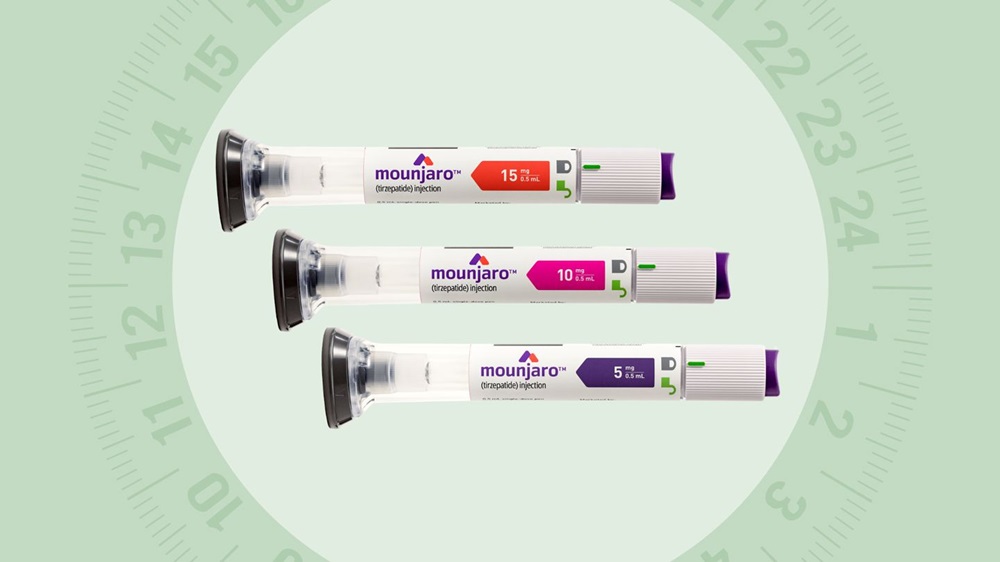Could a New Diabetes Drug Also Serve as a Potent Weapon Against Obesity?
There is growing excitement about tirzepatide, an experimental drug for type 2 diabetes that also shows striking potential as a treatment for obesity.
Early clinical trials indicate that promote significant tirzepatide for weight loss in addition to lowering blood sugar.
If approved, experts believe tirzepatide could usher in a new era of highly effective medication options for the management of obesity.
In this article, we’ll explore the available research on tirzepatide for weight loss and what makes this drug so promising.
How Does Tirzepatide Work?
Tirzepatide belongs to a class of injectable diabetes medications called GLP-1 receptor agonists. These drugs mimic the effects of GLP-1, an appetite-regulating hormone produced in the gut.
By activating GLP-1 receptors in the brain, tirzepatide triggers feelings of fullness and reduces appetite. This effect enables effortless calorie restriction by curbing food cravings.
In addition, research indicates tirzepatide also revs up metabolism and energy expenditure even without changes to diet or exercise. The combined impact equates to accelerated fat burning and weight loss.
Key Actions of Tirzepatide:
– Activates GLP-1 receptors
– Increases feelings of fullness
– Reduces appetite and cravings
– Boosts metabolism
– Triggers fat burning
So in short—tirzepatide makes weight management remarkably easier through appetite control and amped up fat burning ability.
Early results reveal tirzepatide generates more significant improvements across all areas compared to other GLP-1 drugs used for obesity treatment.
Groundbreaking Clinical Trial Findings
In 2021, pharma company Eli Lilly published groundbreaking data from a 72-week clinical trial of tirzepatide.
The double-blind, placebo-controlled study looked at three doses of tirzepatide for type 2 diabetes treatment compared to placebo and semaglutide (an already approved GLP-1 drug).
Participants received weekly tirzepatide injections alongside recommendations for diet and exercise.
The results rocked the medical community.
Across all tirzepatide doses, participants experienced over 20% body weight reduction on average after 72 weeks.
- 21.4% with the 5mg dose
- 23.6% with the 10mg dose
- 25.2% with the 15mg dose
In contrast, semaglutide and placebo groups saw an average body weight reduction of 6.9% and 1.9% respectively.
Clearly tirzepatide massively outperformed the comparison groups for weight loss.
But even more impressive was the drug’s ability to help participants maintain their results long-term.

Average Body Weight Reduction After 72 Weeks:
– Tirzepatide 5mg: 21.4%
– Tirzepatide 10mg: 23.6%
– Tirzepatide 15mg: 25.2%
– Semaglutide: 6.9%
– Placebo: 1.9%
Alongside jaw-dropping weight loss statistics, tirzepatide also demonstrated excellent efficacy as a blood sugar lowering medication on par with semaglutide.
For the 10mg and 15mg doses of tirzepatide, average HbA1c reductions reached up to 2.28% after 72 weeks. This puts the results well within the target range for diabetes control.
What Does This Mean for Obesity Treatment?
The incredible clinical trial findings for tirzepatide have caused great excitement within the medical community.
Doctors now recognize tirzepatide as arguably the most effective pharmacological weight loss intervention ever studied.
Dr. Ania Jastreboff, an obesity medicine specialist at Yale, remarked:
Tirzepatide really holds unprecedented promise to be an absolute game-changer. I think most weight-management experts are incredibly encouraged by the results so far.
Unlike most weight loss medications, tirzepatide directly targets some of the main underlying drivers of obesity—namely dysfunctional appetite/satiety regulation and metabolic abnormalities.
By addressing core contributors to weight gain, tirzepatide gives people a mechanism to sustainably overcome obesity rather than relying solely on motivation for lifestyle changes.
Experts anticipate that obesity treatment guidelines will likely incorporate tirzepatide as a frontline, standard-of-care medication option if long-term safety and efficacy hold up post-approval.
What Are Possible Downsides?
As promising as the research looks so far, tirzepatide is still under investigation. The FDA plans to review all trial data in full before approval.
Like other GLP-1 drugs, tirzepatide may cause temporary GI side effects including nausea, vomiting, diarrhea or constipation. These tend to resolve within a few weeks of starting treatment.
There are also open questions around long-term safety risks and whether weight loss and glucose control persist beyond 72 weeks.
While Eli Lilly collects supporting data, doctors remain cautiously optimistic given current observations.
The Takeaway: A True Breakthrough for Diabesity Treatment
In combination, obesity and diabetes – sometimes called diabesity – represent one of the greatest threats to human health worldwide.
Tirzepatide brings hope as an incredibly effective medication to tackle both conditions simultaneously.
GLP-1 drugs like tirzepatide finally leverage key scientific insights about appetite regulation to create accessible pharmaceutical solutions.
Where behavioral interventions often struggle, tirzepatide offers lasting weight control with minimal effort due to profound impacts on satiety and metabolic function.
Pending final regulatory approval, tirzepatide introduction likely signifies the advent of more powerful medical options for sustainable weight management in the future.













